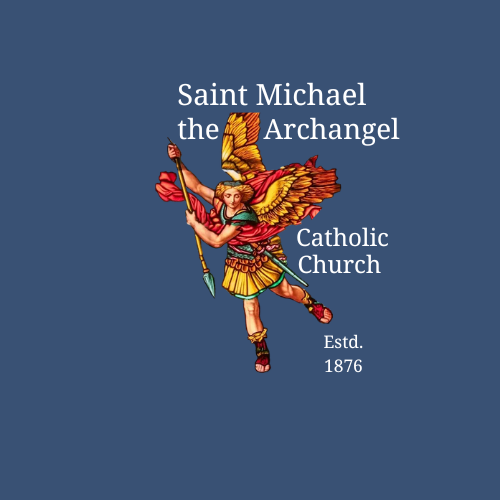Ash Wednesday
Rend your hearts, not your garments, and return to the LORD, your God.
Joel 2: 12
Ash Wednesday is March 5th, 2025 of this Liturgical Year..
What is Ash Wednesday?
Ash Wednesday is one of the most popular and important holy days in the Liturgical Year. Ash Wednesday opens Lent, a season of Fasting and Prayer.
Ash Wednesday takes place 46 days before Easter Sunday, and is chiefly observed by Catholics, although many other Christians observe it too.
Ash Wednesday comes from the ancient Jewish tradition of penance and fasting. The practice includes the wearing of ashes on the head. Writings from the Second-century Church refer to the wearing of ashes as a sign of penance. The ashes symbolize the dust from which God made us. Ashes also symbolize grief, in this case, grief that we have sinned and caused division from God.
Priests administer ashes during Mass and all are invited to accept the ashes as a visible symbol of penance. Even non-Christians and the excommunicated are welcome to receive the ashes. As the priest applies the ashes to a person's forehead, he speaks the words: "Remember that you are dust, and to dust you shall return." Alternatively, the priest may speak the words, "Repent and believe in the Gospel." The receiving of ashes is an impressive public act of penitence and reconciliation. We acknowledge that we have sinned, but are ready to change.
It is important to remember that Ash Wednesday is a day of penitential prayer and fasting. Some faithful take the rest of the day off work and remain home. It is generally inappropriate to dine out, to shop, or to go about in public after receiving the ashes. Feasting is highly inappropriate. Small children, the elderly and sick are exempt from this observance.
Mass Schedule for Ash Wednesday, March 5th
Mass Times for Ash Wednesday, March 5th, 2025:
7:00am (English)
9:00am (English)
7:00pm (English)
8:00pm
(Portuguese), Lower Chapel
Even now, says the LORD, return to me with your whole heart, with fasting, and weeping, and mourning; Rend your hearts, not your garments, and return to the LORD, your God. For gracious and merciful is he, slow to anger, rich in kindness, and relenting in punishment.
Joel 2: 12-13
Why do we receive Ashes?
Following the example of the Ninevites, who did penance in sackcloth and ashes, our foreheads are marked with ashes to humble our hearts and to remind us that life passes away on Earth.
We remember this when we are told "Remember, Man is dust, and unto dust you shall return."
Ashes are a symbol of penance made sacramental by the blessing of the Church, and they help us develop a spirit of humility and sacrifice.
The distribution of ashes comes from a ceremony of ages past. Christians who had committed grave faults performed public penance. On Ash Wednesday, the Bishop blessed the hair shirts which they were to wear during the forty days of penance, and sprinkled over them ashes made from the palms from the previous year. Then, while the faithful recited the Seven Penitential Psalms, the penitents were turned out of the church because of their sins -- just as Adam, the first man, was turned out of Paradise because of his disobedience. The penitents did not enter the church again until Holy Thursday after having won reconciliation by the toil of forty days' penance and sacramental absolution. Later, all Christians, whether public or secret penitents, came to receive ashes out of devotion. In earlier times, the distribution of ashes was followed by a penitential procession.
About the Ashes
The ashes are made from the blessed palms used in the Palm Sunday celebration of the previous year. The ashes are christened with Holy Water and are scented by exposure to incense. While the ashes symbolize penance and contrition, they are also a reminder that God is gracious and merciful to those who call on Him with repentant hearts. His Divine mercy is of utmost importance during the season of Lent, and the Church calls on us to seek that mercy during the entire Lenten season with Reflection, Prayer and Penance.
Conversion is an essential part of Christian life, for none of us can measure up to the tremendous vocation that is our's as Christian. We are in constant need of mercy and forgiveness.
On Ash Wednesday, as ashes are placed on our forehead, we ask God for his help to use with profit the favorable time of Lent as we journey toward Easter.
How can we start on Ash Wednesday to Live Lent?
Pray:
Lord, purify my heart and cleanse my soul, that I may forever remain close beside you.
Reflect on this reading:
Yet even now—oracle of the LORD— return to me with your whole heart, with fasting, weeping, and mourning. Rend your hearts, not your garments, and return to the LORD , your God, For he is gracious and merciful, slow to anger, abounding in steadfast love, and relenting in punishment.
Perhaps he will again relent and leave behind a blessing, Grain offering and libation for the LORD, your God. Blow the horn in Zion! Proclaim a fast, call an assembly!
Gather the people, sanctify the congregation; Assemble the elderly; gather the children, even infants nursing at the breast; Let the bridegroom leave his room, and the bride her bridal tent.
Between the porch and the altar let the priests weep, let the ministers of the L ORD weep and say: “Spare your people, LORD! do not let your heritage become a disgrace, a byword among the nations!
Why should they say among the peoples, ‘Where is their God?’”
Joel 2: 12-18
Meditation:
Ash Wednesday is the day we receive ashes on our forehead in the shape of a cross. Why do we do this and what does it mean? The ashes are a symbol of our human mortality, the fact that we will die and our only survival is through Christ.
Indeed, when the priest puts the ashes on our forehead, tracing the sign of the cross with his finger, he speaks the words, "Remember you are dust and to dust you shall return." This is a gentle reminder that we live only due to the will of God, and we will live again, only through the deliverance of Jesus Christ.
God created us from dust. Even science has demonstrated that we are all made of atoms created at the beginning of the universe. Although our bodies will return to dust, our immortal souls will live again, thanks to Christ's sacrifice, hence the sign of the cross.
Today is a day of repentance, prayer and fasting. After receiving our ashes, we should not go out, but rather go home to pray and meditate on this simple truth: Our bodies come from dust, and to dust they shall return, but our souls will live forever thanks to the sacrifice of Jesus Christ on the cross.
Pray:
Lord, give me a quiet, humble heart and a clean soul so I will be ready to listen to your word.
Action:
Rather than going out in public, spend what time you can in prayer and contemplation. Keep up your appearance. Do not show off your ashes, or appear hungry in public. Make no public display other than to be humble and kind whatever you do.
Lent is Practice for a Holy Life
Living Lent
The season of Lent is the forty days before Easter consisting of fasting, prayer, and penitence beginning on Ash Wednesday and concluding at sundown on Holy Thursday.
- Commit to your faith and choose to 'live' Lent.
- Get inspired, explore the Bible, reflect on prayers and take practice.
Don't just observe Lent, live it!




